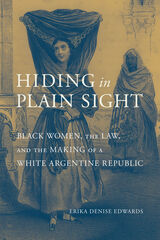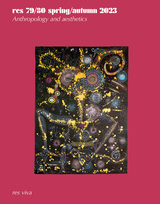3 start with H start with H

The first collection of essays on Argentine metal music.
This is an interdisciplinary study of Argentina’s heavy metal subculture between 1983 and 2002, a period in which metal music withstood the onslaught of military dictatorship and survived the neoliberal policies of bourgeois democracy.
Edited by leading researchers in the field, this collection addresses the music’s rituals, circulations, cultural products, lyrics, and intertexts, allowing readers to rethink the genre’s place within Argentinean politics and economics. Exclusively written by members of the Group for Interdisciplinary Research on Argentinian Heavy Metal (GIIHMA) in a communal approach to scholarship, the book echoes the working-class voices that marked early post-dictatorship metal music in Argentina, exploring heavy metal music as a catalyst for social change and a site for engaging political reflection. This is a fascinating work of scholarship and a groundbreaking contribution to the emerging field of global metal studies.

2021 Finalist for the Harriet Tubman Book Prize
2020 Finalist Berkshire Conference of Women Historians Book Prize
Details how African-descended women’s societal, marital, and sexual decisions forever reshaped the racial makeup of Argentina
Argentina promotes itself as a country of European immigrants. This makes it an exception to other Latin American countries, which embrace a more mixed—African, Indian, European—heritage. Hiding in Plain Sight: Black Women, the Law, and the Making of a White Argentine Republic traces the origins of what some white Argentines mischaracterize as a “black disappearance” by delving into the intimate lives of black women and explaining how they contributed to the making of a “white” Argentina. Erika Denise Edwards has produced the first comprehensive study in English of the history of African descendants outside of Buenos Aires in the late colonial and early republican periods, with a focus on how these women sought whiteness to better their lives and that of their children.
Edwards argues that attempts by black women to escape the stigma of blackness by recategorizing themselves and their descendants as white began as early as the late eighteenth century, challenging scholars who assert that the black population drastically declined at the end of the nineteenth century because of the whitening or modernization process. She further contends that in Córdoba, Argentina, women of African descent (such as wives, mothers, daughters, and concubines) were instrumental in shaping their own racial reclassifications and destinies.
This volume makes use of a wealth of sources to relate these women’s choices. The sources consulted include city censuses and notarial and probate records that deal with free and enslaved African descendants; criminal, ecclesiastical, and civil court cases; marriages and baptisms records and newsletters. These varied sources provide information about the day-to-day activities of cordobés society and how women of African descent lived, formed relationships, thrived, and partook in the transformation of racial identities in Argentina.

READERS
Browse our collection.
PUBLISHERS
See BiblioVault's publisher services.
STUDENT SERVICES
Files for college accessibility offices.
UChicago Accessibility Resources
home | accessibility | search | about | contact us
BiblioVault ® 2001 - 2024
The University of Chicago Press









